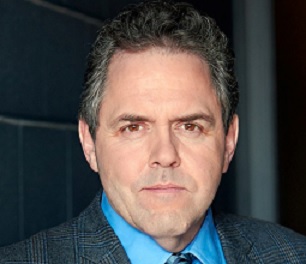Canadian industry commits to ‘zero-tolerance’ approach to harassment
Sixteen unions, guilds and groups held an "unprecedented" meeting Thursday night to address bullying and abuse in the entertainment industry.

Sixteen organizations, including ACTRA, CMPA, DGC, WGC and IATSE, have committed to enacting an industry-wide code of conduct that lays out definitions of appropriate and inappropriate behaviour, enforcement guidelines and consequences for members found in violation.
In the wake of the hundreds of sexual harassment and discrimination allegations against dozens of members of the wider screen industry internationally, leaders from the Canadian unions and guilds gathered Nov. 23 to collaborate on an industry-wide response.
The organizations agreed to create more effective reporting mechanisms and support systems to ensure individuals can come forward without fear of retribution or judgement. In addition, they committed to ensuring more effective enforcement of existing industry policies, as well as to launching a multi-level education and training campaign to ensure safe workplaces. Meeting participants also created working groups to get to begin tackling the objectives they laid out.
“It was an unprecedented meeting in terms of the wide range of industry partners who came around that table,” David Sparrow, president of ACTRA National (pictured), told Playback Daily.
“We’re looking to have an industry-wide statement that, regardless of where this behaviour is happening, it shouldn’t be happening. We want zero-tolerance for harassment, sexual harassment, bullying, abuse and violence,” he said.
“The real test will be six months from now, if something were to happen, how is the industry going to respond?” he added.
While no timelines were set, Sparrow said all of the organizations are getting to work on these issues now and are committed to getting it right.
He noted that the biggest challenge facing the industry is the pervasive fear of retaliation that has “paralyzed” many of its members from coming forward to report their experiences of harassment and abuse.
“People aren’t necessarily worried about losing the job they have today, they’re worried about whether they’ll ever get offered another job in this industry,” he said. “The question becomes how do we change the mechanisms by which people can report so that they feel more comfortable reporting and following through so that we take away that fear of retaliation.”
Sparrow added that the working groups will now set out to establish what those mechanisms will be. He also stated that collective agreements were not discussed at the meeting, but language should be addressed as individual agreements come up for negotiation.
“In many respects the industry coming together and speaking as one voice, producers right through the trade unions, is going to be stronger for this particular issue than the collective agreements,” he said. “I believe, this code of conduct and the work we’re doing today will set a framework and a foundation for the way our industry’s culture is going to change in the future and how all workers, regardless of where they fall in the hierarchy, will benefit.”
He added that the code of conduct will apply to industry members across Canada, but also foreign producers working in Canada.
The participating groups are:
Association of Canadian Advertisers
Academy of Canadian Cinema & Television
The Alliance of Canadian Cinema, Television and Radio Artists
Canadian Actors Equity Association
Canadian Media Guild
Casting Directors Society of Canada
Canadian Media Producers Association
Director’s Guild of Canada
Entertainment Industry Coalition
International Alliance of Theatrical Stage Employees
Institute of Communication Agencies
NABET 700-M Unifor
Talent Agents and Managers Association of Canada
Toronto International Film Festival
Writers Guild of Canada
Women in View

 The definitive CDN broadcast and production resource.
The definitive CDN broadcast and production resource.










